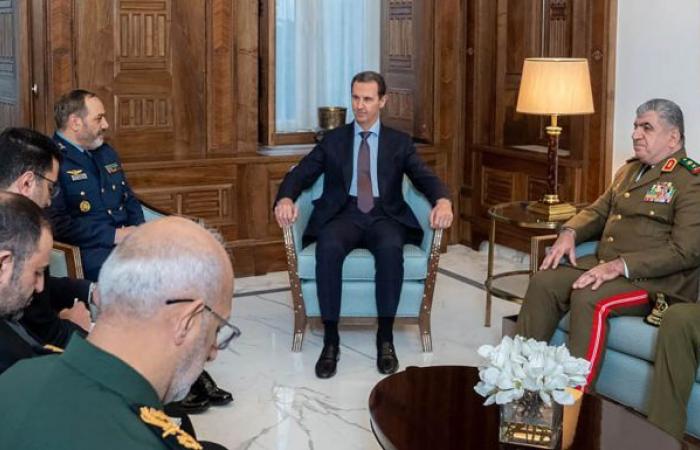While the war in Gaza persists, Israel’s war in Lebanon could end under a ceasefire agreement. And this is where Syria, discreet since the start of the conflict, seems to emerge as a potentially key player in the negotiations between Israel and Lebanon. Although these talks have not yet been made public, several sources indicate that emissaries from international chancelleries are placing Damascus at the heart of the negotiations.
An evolving regional conflict
For more than a year, the region has been plunged into a conflict which began with the Hamas attack against Israel on October 7, 2023. In Lebanon, Hezbollah opened a support front in Gaza the next day, October 8 2023, by applying the principle of “unity of fronts”. Lebanon, its people and its business-as-usual government were drawn into the whirlwind of war following the unilateral decision of the pro-Iran militia to link the country’s fate to that of Gaza. However, Lebanon is now seeking to negotiate a deal separate from the situation in the Palestinian enclave. The American envoy, Amos Hochstein, is holding discussions with the Speaker of the Lebanese House, Nabih Berry, who insists on the strict application of United Nations Resolution 1701, adopted in 2006 after the war between Israel and Hezbollah.
This resolution aims to establish a lasting ceasefire in southern Lebanon, in particular by demanding the disarmament of Hezbollah, its withdrawal north of the Litani River and the deployment of the United Nations Interim Force in Lebanon (UNIFIL). Current discussions focus on mechanisms to strengthen the implementation of this resolution, such as expanding the monitoring commission to include countries such as the United States, France, Jordan and Egypt.
Syria, a strategic pivot
Despite these efforts, Israel remains skeptical about the effectiveness of simple implementation of Resolution 1701. Israeli authorities believe that Hezbollah has managed to build a military infrastructure along the border without displaying a visible armed presence, thus circumventing the provisions of the resolution. Indeed, despite intense fighting and the destruction of border villages, Israeli forces have not succeeded in establishing a lasting foothold in southern Lebanon.
It is in this context that Syria could play a decisive role. Israel is convinced that Syrian territory is a major route for Hezbollah’s arms supply from Iran. Routes through Syria are essential for the transfer of missiles and other weaponry to Lebanon. As a result, Israel has intensified its strikes in Syria, notably targeting Hezbollah’s logistical infrastructure and arms smuggling routes.
Diplomatic sources report that Israeli Strategic Affairs Minister Ron Dermer recently visited Moscow to seek Russian President Vladimir Putin’s influence over the Syrian regime. The objective would be to convince Damascus to distance itself from Tehran and block the flow of weapons to Hezbollah. In exchange, a reduction in economic sanctions imposed on Syria for more than a decade could be considered.
The Syrian town of Qousseir, located near the Lebanese border, illustrates the strategic importance of Syria in this conflict. Controlled by Hezbollah since a decisive battle in 2013, Qousseir has become a crucial logistical corridor for Shiite training. Israeli strikes in this region have targeted infrastructure and roads used for arms smuggling, causing significant human and material losses.
Towards a realignment of alliances?
The crucial question is whether Syria is ready to reorient its regional alliances. Weakened economically and politically, the regime of Bashar al-Assad could be tempted by a partial lifting of sanctions in exchange for cooperation with Israel and its Western allies. However, Damascus must also consider its close relations with Iran which has been a key supporter during the Syrian civil war, as well as with Hezbollah which plays a key military role in the country.
Russia, which has significant influence in Syria, could encourage Damascus to accept such a deal, especially if it serves its own strategic interests in the region. With the prospect of a change in the White House and the return of Donald Trump who has expressed his intention to quickly end the conflict between Russia and Ukraine, Moscow could see an advantage in stabilizing the situation in Syria.
Israeli operations against Hezbollah in Syria have intensified, notably targeting unit 4400, responsible for arms smuggling. The Israeli military says these actions have significantly weakened Hezbollah’s abilities to strengthen its arsenal. However, it is too early to measure the real impact of these strikes on the balance of forces in the region.
The challenge for Syria is to determine whether the potential benefits of a reduction in economic sanctions and a rapprochement with certain Arab countries outweigh the risks of a break with Iran and Hezbollah. This strategic choice could reshape regional alliances and have major repercussions on the stability of the Middle East.
In short, Syria finds itself at a decisive crossroads in the context of negotiations for a ceasefire between Israel and Lebanon. Its potential role in controlling Hezbollah’s arms supply could be decisive for the success of the discussions and the establishment of lasting peace in southern Lebanon. Nevertheless, uncertainties remain about Damascus’ willingness to modify its historic alliances and its ability to do so without further destabilizing the region.






